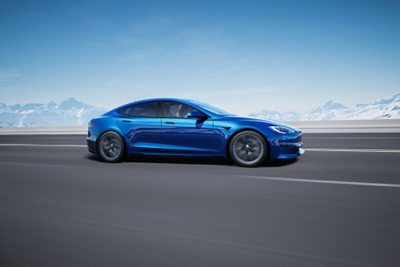A jury in California determined Tesla wasn't at fault for a crash that involved Autopilot. The jury concluded the safety system didn't fail, and the car's airbags also worked properly. Essentially, the message here was drivers can't blame the car if there's an issue they should have handled.
Tesla has offered Autopilot as a free feature for many years, though it has evolved via different hardware and over-the-air software updates. While its name suggests it may drive the car for you, it's really a suite of advanced driver-assist systems like you'll find in many of today's cars.
Tesla Autopilot pairs traffic-aware cruise control with lane-centering technologies and other safety features to help take the strain off of highway driving. However, the driver must remain alert and aware so they can immediately take control if a situation is beyond the control of the assistance system's capabilities.
Justine Hsu of Los Angeles sued Tesla a few years ago. She claimed her Model S drove itself into a curb and the airbag opened "so violently" it broke her jaw, knocked out teeth and caused nerve damage to her face. She blamed Autopilot and the car's airbag, aiming to get $3 million from the U.S. EV maker.
Tesla said its features weren't at fault, and Hsu shouldn't have been using Autopilot on city streets. It's for highway use, as clearly explained in the user manual.
The jury agreed, offering Hsu nothing for damages. It also determined the airbag worked as it was supposed to. Moreover, the jury found Tesla didn't fail to disclose any facts related to the case on purpose.
According to Automotive News, the jurors shared with Reuters that Tesla provided a clear warning that its Autopilot system isn't meant to drive the car on its own and the distracted driver was the issue.
A Georgetown Law professor who teaches a class about autonomous vehicles noted this verdict marks a big win for Tesla. He explained:
"This case should be a wakeup call to Tesla owners: they can't over-rely on Autopilot, and they really need to be ready to take control and Tesla is not a self-driving system."
Despite the uniqueness of the trial and verdict, the decision isn't considered legally binding for other cases. Different juries may make different decisions based on the facts of the case. For example, if a driver was using the feature correctly on the highway and there was a fatality, there might be different considerations involved.












